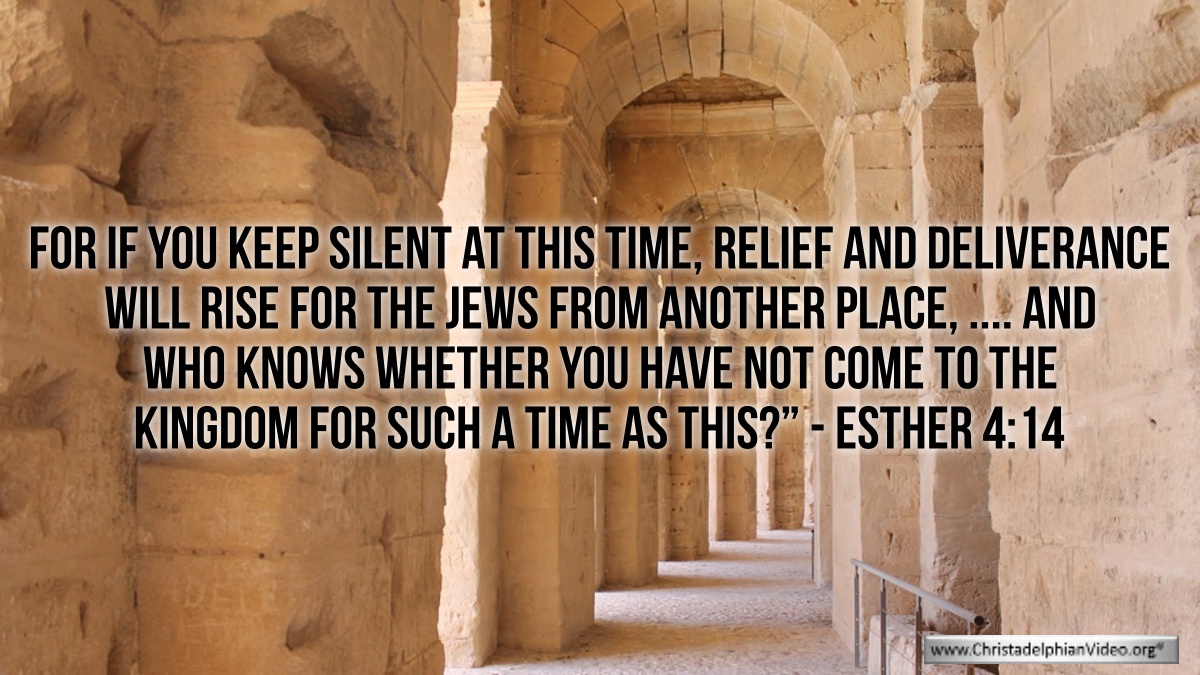
Todays readings… Esther 3&4, Amos 8, Philemon
We are reading the dramatic story of Esther and how she became the Queen of King Ahasuerus. Haman comes on the scene and wins the King’s favour, but Esther’s uncle, Mordecai declines to honour him by bowing down as he passes.
A proud man, Haman decides to destroy, not only Mordecai but also all the Jews and he sends out an edict in the King’s name, for this to happen in month of Adar – chosen by lot (3 v.7). But this is 11 months away!
Mordecai now stands at “the king’s gate” [4 v.2] dressed in sackcloth. Esther, within the Palace is not aware at the first of these events. As a Jew, should she speak up? She has not had an audience with the king for 30 days (v.11) – this only happens when the king calls you: it would cost you your life if you came before the king uninvited, unless he held out the golden scepter.
Mordecai sends a message to her, “Do not think to yourself that in the king’s palace you will escape any more than all the other Jews, For if you keep silent at this time, relief and deliverance will arise for the Jews from another place … who knows whether you have not come to the kingdom for such a time as this?” [v.13-15] .
Mordecai is conscious of the over-riding hand of God in affairs, causing “all things to work together for good, for those who are called according to his purpose” – as Paul told the Romans (8 v.28)
The “good” is the good of God’s purpose in the all-seeing perspective of the Creator who sees “the end from the beginning” (Isaiah 46 v,10).
Paul is making a parallel point in his letter to Philemon that we also read today. This was about Philemon’s runaway slave Onesimus who had now become a believer. Paul comments, “For this perhaps is why he was parted from you for a while, that you might have him back forever; no longer as a slave, but more than a slave, as a beloved brother.” [v.15,16]
Let us not “keep silent” in testifying to the truth when challenging situations arise! If we really believe we are in the service of God because we now, spiritually, belong to his son, having taken on his name, we will become more and more conscious that God has the oversight of our lives and so “all things” are working “together for good”. We need to have the ‘vision’ Mordecai wanted Esther to have. .
Now that God’s word is so freely available everyone should regularly feed their minds on it. It is “training us to renounce ungodliness and worldly passions, and to live self-controlled, upright and godly lives …” [2 v.12]
May it be that you are making – indeed – have made – great progress in your “training” and are holding firm to God’s trustworthy word.”





